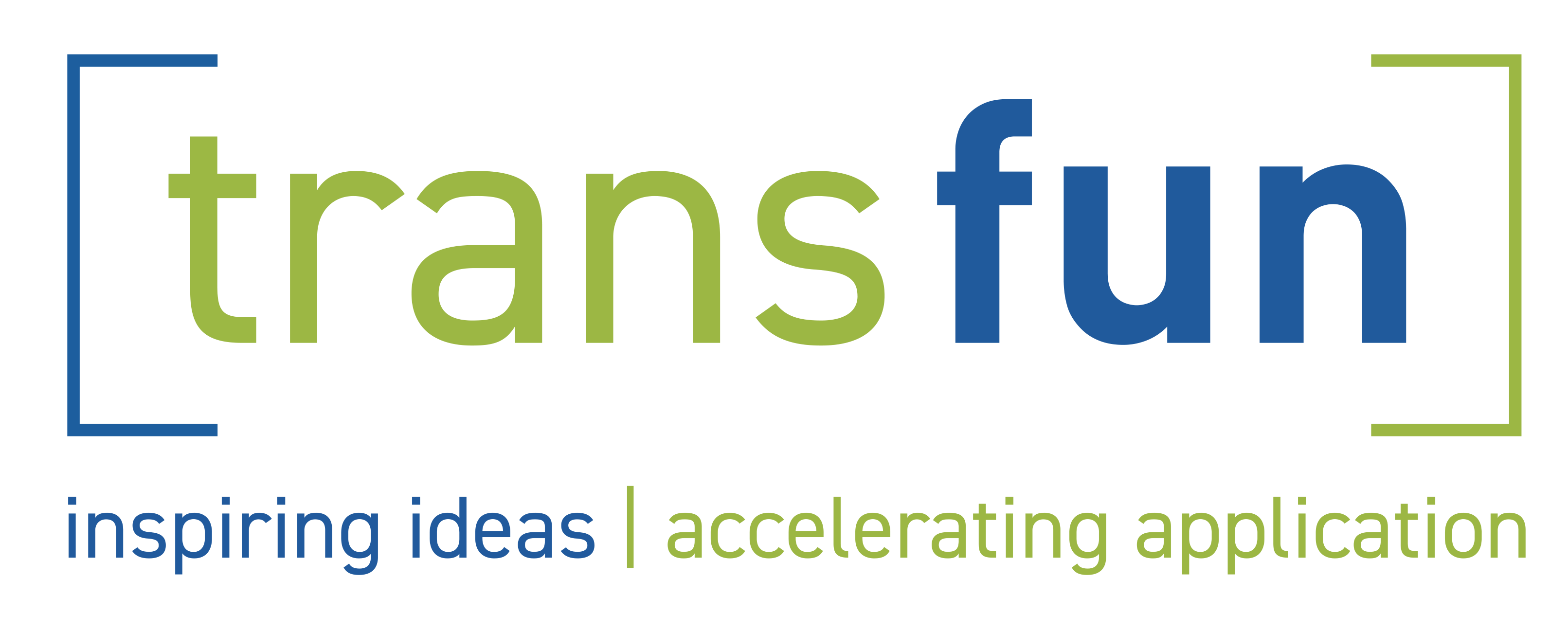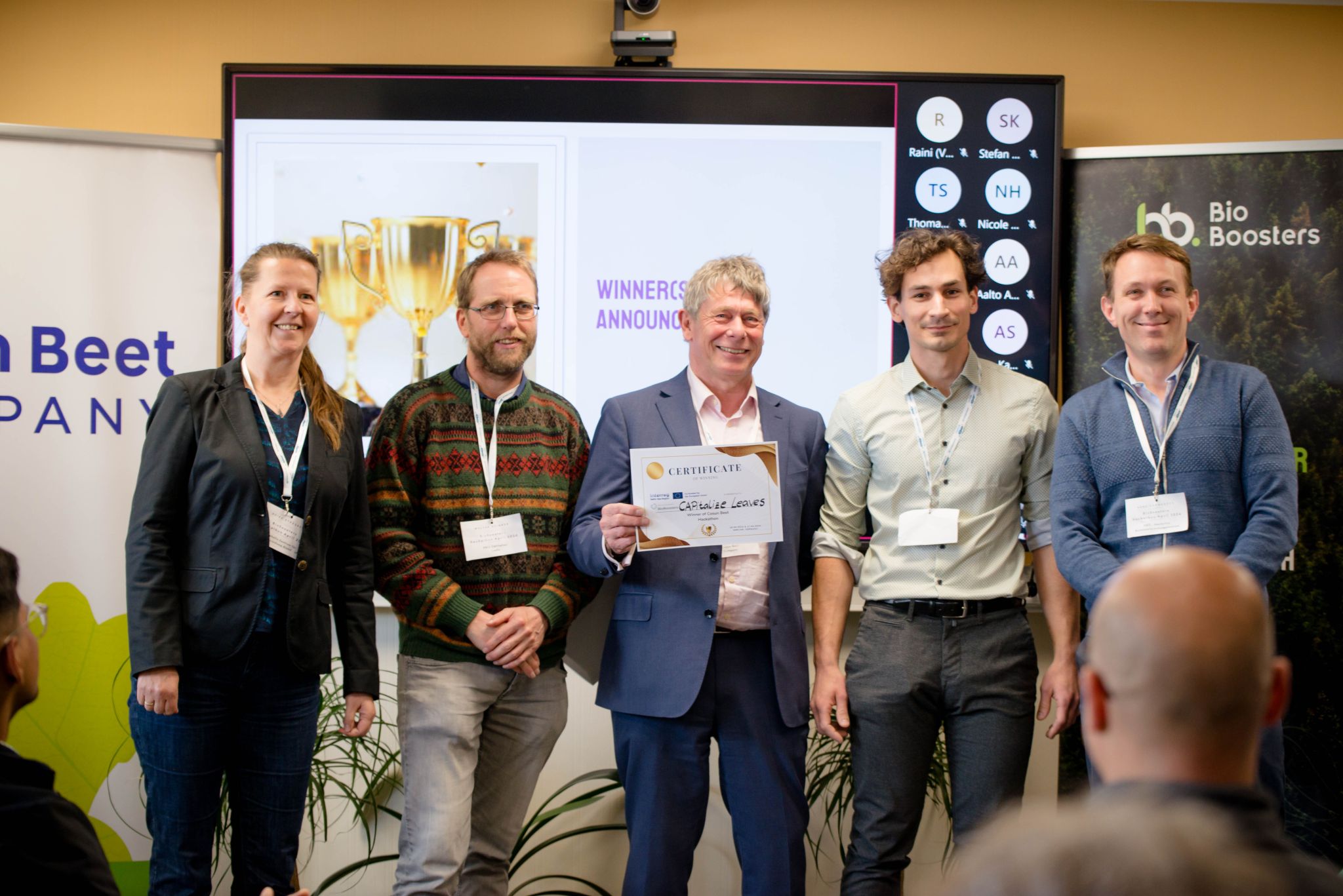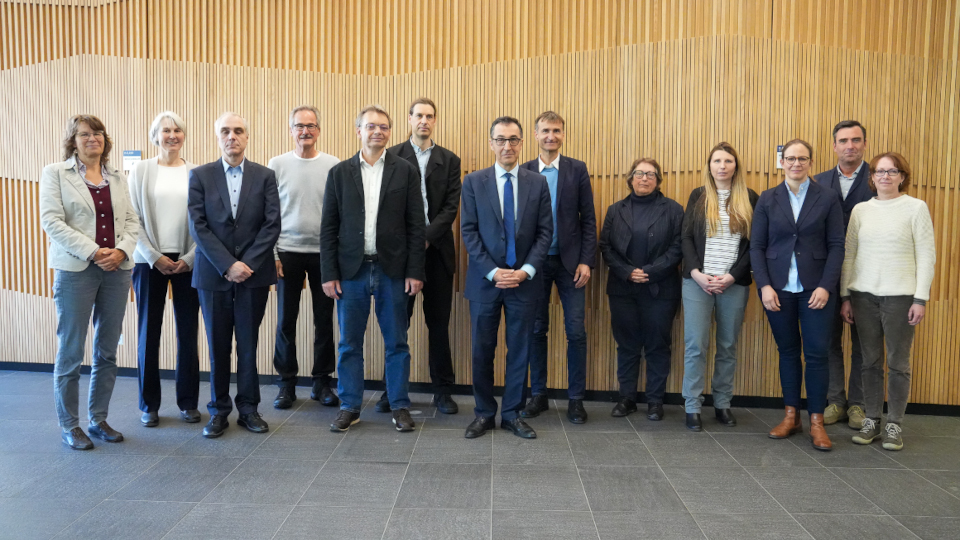Transfer News
April – June 2024
First review of transfun® funding programme at the UFZ
 As part of a Helmholtz Association call for proposals, the Knowledge and Technology Transfer (WTT) department at the UFZ was granted €550,000 per year for technology transfer on a permanent basis.
As part of a Helmholtz Association call for proposals, the Knowledge and Technology Transfer (WTT) department at the UFZ was granted €550,000 per year for technology transfer on a permanent basis.
The UFZ funding programme transfun®, which was launched in 2022, supports collaboration with companies and creates new opportunities to tackle problems quickly and easily, find solutions and develop products together. An important focus here is the involvement of mentors from industry who contribute their market or customer experience, enabling market relevance and customer perspectives to flow into UFZ's transfer projects.
After around two years, we are now taking stock: 31 projects have been funded so far as part of the transfun® innovation programme. Licence agreements for the external marketing of software solutions have now been signed for two of these projects.
One of these software solutions helps to optimise the allocation of wind turbines. Another enables efficient and structured management of toxicological test results, which are generated, for example, during official approval tests for chemicals, water or wastewater tests or during scientific research into the cause-and-effect relationships of toxicity.
In other projects, we are working with industrial partners to prepare for market entry. These include new manufacturing processes for bulk chemicals, such as adipic acid or isocitrate, a precipitation collector and sampler for groundwater or water bodies, tools for the risk assessment of chemicals or new information systems for environmental topics that will later be used in apps.
The funding programme is currently also supporting three new spin-off initiatives at the UFZ that want to gain a foothold on the market with their business ideas over the next few years.
"transfun® has become an important driver of innovation for the UFZ. In particular, the interdisciplinary discussions with involved mentors from industry, authorities and other scientific institutions enrich and strengthen our projects." Dr Joachim Nöller, Head of the Knowledge and Technology Transfer Department at the UFZ.
Dr. Sabine König, Administrative Managing Director at the UFZ, also draws a consistently positive balance: "With transfun®, the UFZ has succeeded in establishing an effective and extraordinarily activating transfer instrument. The incentives provided by transfun® have led to ideas being generated, formulated and realised in projects of varying scope and maturity. This diversity of projects demonstrates the innovative strength of the UFZ in very different areas."
About the UFZ:
At the Helmholtz Centre for Environmental Research (UFZ), scientists research the causes and consequences of the far-reaching changes to the environment and develop possible solutions. To this end, the UFZ has extensive expertise and a wide range of innovative approaches in the fields of sustainable biotechnology, groundwater and wastewater remediation or environmental technology such as sensor technology, information systems and monitoring products. The UFZ employs around 1,100 people at its sites in Leipzig, Halle and Magdeburg. It is funded by the federal government as well as Saxony and Saxony-Anhalt.
www.ufz.de
The Helmholtz Association identifies and addresses major and, above all, pressing issues facing society, science and industry. Its task is to achieve the long-term research goals of the state and society. The aim is to maintain and even improve the basis of human life. Helmholtz consists of 19 scientific-technological and medical-biological research centres.
www.helmholtz.de
Would you like to find out more about transfun® and benefit from our many years of experience? We have extensive expertise and innovations, particularly in the fields of sustainable biotechnology, groundwater and wastewater remediation or environmental technologies such as sensor technology, information systems and monitoring products. Simply contact the UFZ with your ideas via wtt@ufz.de.
June 2024
Biorefinery as the key to waste utilisation
 Eight teams presented their solutions for processing organic residues at the final of the CONSUN BEET Hackathon in April 2024. There were three winning teams, including the UFZ and DBFZ team, which impressed the jury with its CAPitalise Leaves idea.
Eight teams presented their solutions for processing organic residues at the final of the CONSUN BEET Hackathon in April 2024. There were three winning teams, including the UFZ and DBFZ team, which impressed the jury with its CAPitalise Leaves idea.
The team, consisting of Heike Stäuber and Flávio Baleeiro (UFZ Department MIBITECH), as well as Arne Gröngröft and Walter Stinner (DBFZ), continued to develop the climate-friendly Capraferm process over a period of four weeks, enabling the conversion of sugar beet leaves into high-quality industrial chemicals such as carboxylic acids.
The carboxylic acids resulting from the biorefinery thus enable a sustainable production process for the carboxylic acids which are currently produced from fossil raw materials and palm oil.
The three winning teams will now work together with the CONSUN BEET Company to implement the concept.
May 2024
Members of the Scientific Advisory Board for the National Action Plan for Plant Protection announced
 © BMEL
The 12 representatives of the Scientific Advisory Board for the National Action Plan on Sustainable Use of Plant Protection Products (NAP) have been appointed. Among them is Prof. Dr. Matthias Liess, who has been appointed Chairman and to the Advisory Board's "Ecosystem/Environmental Toxicology" specialist area.
© BMEL
The 12 representatives of the Scientific Advisory Board for the National Action Plan on Sustainable Use of Plant Protection Products (NAP) have been appointed. Among them is Prof. Dr. Matthias Liess, who has been appointed Chairman and to the Advisory Board's "Ecosystem/Environmental Toxicology" specialist area.
According to the Federal Ministry of Food and Agriculture, the members of the advisory board will serve for a period of five years in the fields of agroecology, crop production, organic farming, water protection/drinking water, ecosystems/environmental toxicology, consumer protection, occupational safety and user protection and agricultural economics.
The Scientific Advisory Board advises the Federal Government on the sustainable use of plant protection products and by evaluating the National Action Plan from a scientific perspective.
April 2024
